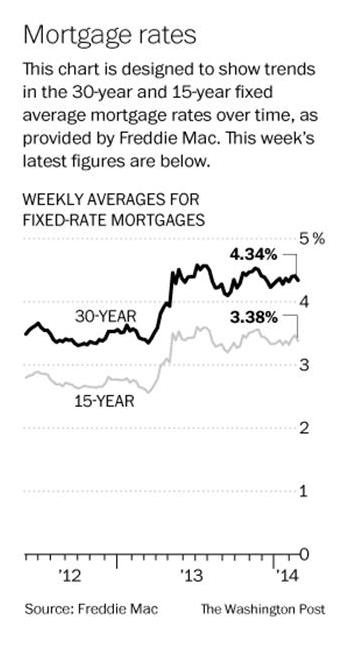The financial benefits of homeownership are evident year round, but particularly around tax time – they seem to jump off the page. Let’s examine how homeownership makes “cents” – from the tax benefits, to good old fashioned financial stability.
1. Homeownership Builds Wealth Over Time
We were always taught growing up that owning a home is a financially savvy move. Our parents knew it, and their parents knew it. But this past decade of real estate turbulence has shaken everyone’s confidence in homeownership. That is why it’s so important that we discuss this again now that we’re in a ‘new market.’ Homeownership can be a very savvy financial move – but only if people buy homes they can actually afford. In 2014, this idea of sticking to a home you can afford to gradually build wealth is a “rule” that just happens to be new and old at the same time.
2. You Build Equity Every Month
Your equity in your home is the amount of money you can sell it for minus what you still owe on it. Every month you make a mortgage payment, and every month a portion of what you pay reduces the amount you owe. That reduction of your mortgage every month increases your equity. That is especially true now with the elimination of risky mortgages like negative amortized and interest-only loans – thanks to the new “Qualified Mortgage” rules. The way mortgages work is that the principal portion of your payment increases slightly every month year after year. It’s lowest on your first payment and highest on your last payment. Thus, as the months and years go by, your equity grows!
3. You Reap Mortgage Tax Deduction Benefits
- Mortgage deduction: The tax code allows homeowners to deduct the mortgage interest from their tax obligations. For many people this is a huge deduction, since interest payments can be the largest component of your mortgage payment in the early years of owning a home.
- Some closing cost deductions: The first year you buy your home, you are able to claim the points (also called origination fees) on your loan, no matter whether they are paid by you or the seller. And because origination fees of 1 percent or more are common, the savings are considerable.
- Property tax is deductible: Real estate property taxes paid on your primary residence and a vacation home are fully deductible for income tax purposes.
4. Tax Deductions on Home Equity Lines
In addition to your mortgage interest, you can deduct the interest you pay on a home equity loan (or line of credit). This allows you to shift your credit card debts to your home equity loan, pay a lower interest rate than the horrendously exorbitant credit card interest rates, and get a deduction on the interest as well.
5. You Get a Capital Gains Exclusion
If you buy a home to live in as your primary residence for more than two years then you will qualify. When you sell, you can keep profits up to $250,000 if you are single, or $500,000 if you are married, and not owe any capital gains taxes. Now, it may sound ridiculous that your house could be worth more than when you purchased it after these past several years of falling house prices. However, if you purchased your home anytime prior to 2003, chances are it has appreciated in value and this tax benefit will come in very handy.
6. A Mortgage Is Like a Forced Savings Plan
Paying that mortgage every month and reducing the amount of your principal is like a forced savings plan. Each month you are building up more valuable equity in your home. In a sense, you are being forced to save—and that’s a good thing.
7. Long Term, Buying Is Cheaper than Renting
In the first few years, it may be cheaper to rent. But over time, as the interest portion of your mortgage payment decreases, the interest that you pay will eventually be lower than the rent you would have been paying. But more importantly, you are not throwing away all that money on rent. You gotta live someplace, so instead of paying off your landlord’s home or building, pay off your own!
~by Michael Corbett, Trulia.com

